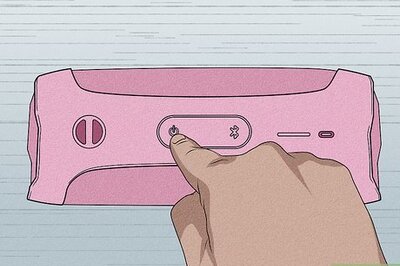
views
The Allahabad High Court on Monday cleared the way for the hearing of the case by a civil court in the case related to the Janmabhoomi-Shahi Idgah land dispute.
Bal Krishna through Hindu Sena chief Vishnu Gupta and others had filed a suit in the court of Civil Judge Senior Division (III) on December 8 last year for shifting of Shahi Masjid Idgah which they claim has been constructed on a part of 13.37 acre land of Sri Krishna Janmabhoomi Trust.
In 1973, a civil court assigned land to both parties based on an agreement between the mosque trust and temple management. However, in 2016, a new petition was filed on behalf of the deity, who was represented as a friend of the deity, to challenge the 1973 ruling.
According to order copy seen by News18, the High Court noted that the Civil Court (Senior Division) did not register the case as a civil suit on September 25, 2020, on the ground that some of the plaintiffs from the Hindu side were not residents of Mathura, the district of the disputed property. The civil court then dismissed the case, registered as “miscellaneous” on the “threshold on the ground that the respondents are devotees/worshipers and if the suit is allowed to be filed, the social and judicial will collapse as they did not have the Right to Sue.
“Admittedly the applicants are not parties to the decree in question nor are they as trustees. Granting permission to the applicants to file a case on the basis of being merely a devotee does not appear to be just and reasonable and filing a case by a devotee is also not permissible in the eyes of the law,” the order read.
But in May last year, the Mathura district judge ruled over the civil judge’s order and said the case could be taken up for hearing.
The dcourt, in disposing of the revision petition, raised several points based on arguments presented on behalf of the petitioners, including whether the plea is maintainable against the impugned order in 2020 and whether a worshipper can file a suit as the next friend of deity. The judge also considered whether the plaintiffs were entitled to maintain the suit challenging the compromise judgment and decrees passed in a civil suit on the ground of fraudulent misrepresentation and collusion and whether the provisions of the Places of Worship (Special Provisions) Act 1991 would apply.
The judge gave detailed findings on each point and set aside the order dated 30.09.2020, holding that the trial court had committed illegality and manifest error. The trial court was directed to hear both sides and pass an appropriate order in light of the observations made in the revision petition.
Thereafter, the Muslim side moved the HC challenging this order, calling it a violation of the Places of Worship (Special Provisions) Act, 1991.
The court noted at the time of dismissing the suit that the Civil Judge (Senior Division) had not issued summons to the defendants, and therefore, the question of the suit’s registration was between the court and the plaintiffs.
It is essential to note that the questions regarding the maintainability of a regular civil suit and its merits require following due process per the Code, which the Trial Court did not do. Moreover, the contentious questions were not required to be decided by the district judge in the revision petition, the high court order read.
The Allahabad High Court observed that after the 2021 order was challenged, the parties participated in revision before the district court over several hearings and raised their contentions.
The court cannot leave any question undecided in a petition filed under Article 227, as any observation made by the court can prejudice the rights and contentions of both parties, the HC said. The suit has now been registered as a civil suit and summons have already been issued by the trial court for filing the respective written statements and framing of issues.
Read all the Latest India News here


















Comments
0 comment